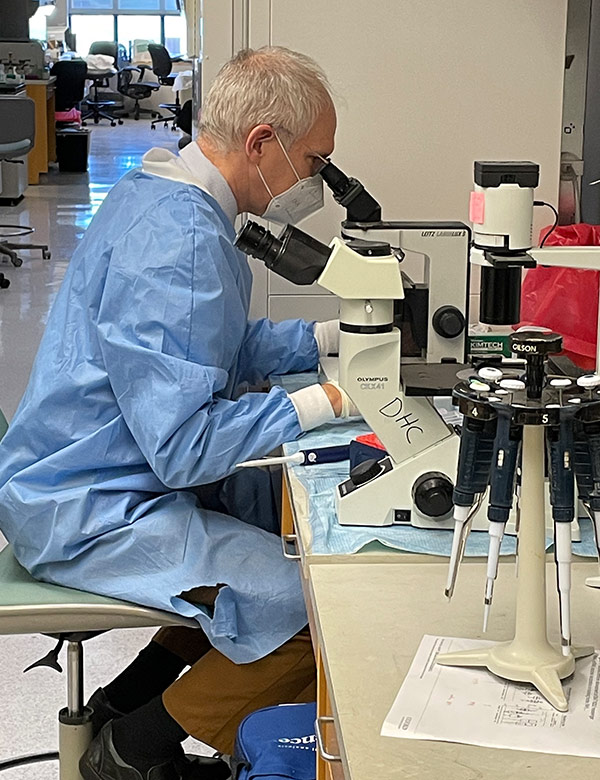Case Western Reserve University researchers, in partnership with Brown University, examine vaccine’s effectiveness over time on seniors and their caregivers
A new, multi-institutional study led by Case Western Reserve University—in partnership with Brown University—found that COVID-19 antibodies produced by the Pfizer vaccine decreased sharply in senior nursing home residents and their caregivers six months after receiving their second shots.
David Canaday, professor at the School of Medicine, and the research team studied blood samples of 120 Ohio nursing home residents and 92 health care workers. In particular, they looked at humoral immunity—also called antibody-mediated immunity—to measure the body’s defenses against the coronavirus.
The researchers, including a lab team at Harvard University, found that individuals’ antibody levels decreased more than 80% after six months; the results were the same in seniors (median age 76) and caregivers (median age 48) and old alike, according to the study.

a microscope to study immunity
After presenting their unpublished results directly to the senior staff at the Centers for Disease Control and Prevention (CDC), researchers were urged to get the data out in the public domain as soon as possible “so we could enter conversation and the decision-making process for booster vaccine recommendations,” Canaday said. As a result, the researchers published the findings on medRxiv, an online preprint server for health sciences studies co-founded by Cold Spring Harbor Laboratory (CSHL), Yale University and the BMJ, a global health care knowledge provider, while the study is under review at a traditional peer-reviewed journal.
Read more in the daily.

